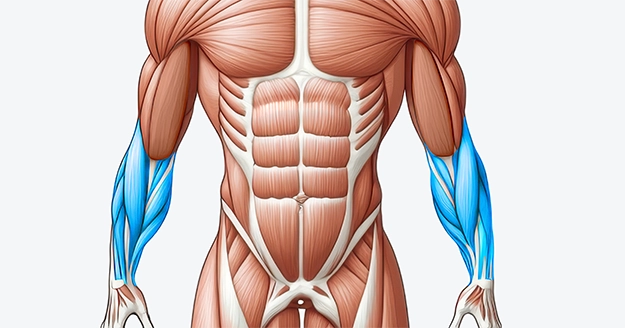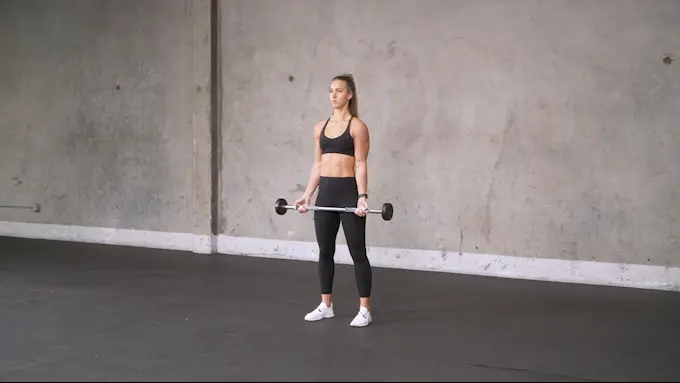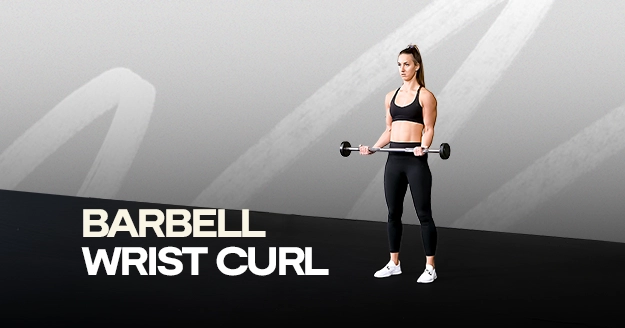Exercise Profile
Barbell Wrist Curl Overview
Barbell wrist curls are a useful exercise for grip strength and wrist stability, which are important for various sports and daily tasks. They also effectively isolate and train the wrist flexor muscles.
Individuals of any fitness level may perform this workout. Beginners can start with light weights to build basic wrist stability and grip strength. Intermediate lifters may increase the weight and explore variations like wrist rotations. Advanced lifters can use heavier loads or use a thicker bar to increase the intensity significantly.
To maximize the benefits of this exercise, use the barbell wrist curl at the end of your routine to really isolate the forearms after completing your compound movements.

Barbell Wrist Curl Instructions
Here’s how to do wrist curls with barbell:
Step 1: Keeping your hands slightly wider than shoulder-width apart, grasp a barbell in front of your thighs and turn your palms out.
Step 2: Stand tall with a braced core and neutral spine. Keeping your arms extended, slowly curl your wrists toward your forearms.
Step 3: Pause and feel the contractions in your forearms before slowly extending your wrists to lower the barbell.

Common Barbell Wrist Curl Variations
The barbell wrist curl has several variations that target different areas of the forearm and improve grip strength. Adding these variations to your practice might help you avoid plateaus, strengthen different muscle groups, and improve wrist mobility. Here are a few popular barbell wrist curl variations:
Barbell Wrist Curl Tips
- Use a modest weight first to ensure correct form and optimal engagement of the forearm muscles.
- Perform slow, controlled reps to fully engage the wrist flexors and avoid using momentum to lift the bar.
- Do not let your wrists drop too low during the downward phase, as this can strain the joint.
Barbell Wrist Curl Common Mistakes
- Not Isolating the Wrists: Allowing your arms or shoulders to help with the movement reduces the effectiveness of the exercise.
- Incorrect Grip Position: Holding the barbell too wide or too narrow can affect your wrist alignment and muscle engagement. This can also cause discomfort in the wrist joints.
Frequently Asked Questions
Is it better to do wrist curls standing or seated?
Both standing and seated variations have their benefits. Seated wrist curls can provide more stability and concentration on isolation, while the standing version can allow you to lift heavier but also increase your tendency to cheat. How to do wrist curls can vary based on your stance.
Can I strengthen my grip for other workouts with wrist curls?
Barbell wrist curls effectively strengthen the muscles used in grip, benefiting other lifts such as deadlifts, pull-ups, and any exercise that requires a firm hold, which is what do wrist curls work.
Why do people curl their wrists?
People do barbell wrist curls for various reasons, depending on their fitness goals. Improved grip strength is the key factor. Another reason is for less arm fatigue by improving forearm endurance.
Post your post-workout selfies in IG and tag @trainestapp, #trainest, or DM them to us to get a shoutout on Trainest Stories!


